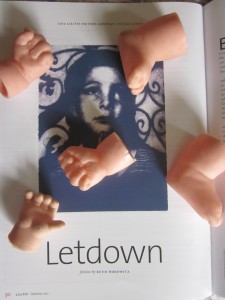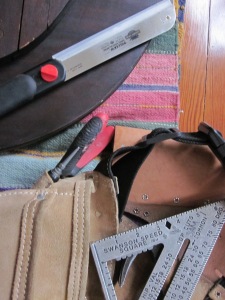I had a not-so-great night last night. Woke up around 2, spent way too long trying to go back to sleep. Hormones? Humidity? A dear friend’s illness? The election? The fact that I got zero writing done yesterday? The fact that while I was getting zero writing done, a friend of a friend’s debut novel just sold at auction?
Whatever the cause, my lousy night left me feeling too washed out to go to the gym this morning. And the fact that at 10 am I would be talking to the friend whose friend sold her book probably figured into the equation. Despite what I would like to think about myself, the idea of this other person’s success was not sitting well with me.
So I made the bed. Took a shower. Folded the cold wash. Tried (and failed) to fix a leak in the soaker hose that snakes through the petunias. Then I tried something harder. I switched to a new dentist. And that turned out to be surprisingly easy. Two phone calls and it was done. When I told our old dentist’s receptionist where to send our records, she even said, “I’ve heard great things about him!”
I still had about 45 minutes before my phone call. I figured that conversation would be a more fun if I went into it from a position of writerly strength. So, buoyed by my dentist-switching success, I opened the draft of my new novel, and wrote. And that turned out to be surprisingly easy, too. I wrote about someone finding a squashed doll’s head in the garden, until the phone rang.
The conversation was great. My friend was so thrilled for her friend, and the story of how the book got sold was so interesting and exciting, that I couldn’t help but get happy and excited, too. “It means it can happen!” My friend said when I confessed about how I’d been feeling. “It’s good!” And of course she was right. And then something else happened.
You know how in the Disney version of “Beauty and the Beast,” after Belle decides she loves the Beast for his inner beauty, he magically transforms into a Rod Stewart look-alike, so she doesn’t have to marry a beast, after all? That ending has always pissed me off. What kind of lesson is it teaching when her reward for not being shallow is the very thing she would have wanted if she were shallow? I mean, come on, folks! Well, what happened to me next was sort of like that.
Just as I was feeling good about my friend’s friend’s success, and feeling even better about myself for feeling so good about my friend’s friend’s success, the Fed Ex truck pulled up in front of my house. I never get things from Fed Ex. But this time, I did. It was 10 contributor’s copies of Lilith magazine’s Summer 2012 issue, in which my short story, “Letdown,” appears as the third-place winner in the publication’s annual fiction contest.
As my friend continued recounting her happy story, I quietly sliced the box opened, removed the packing paper, pulled out a copy of the magazine, and found my story. It looked great.
And that wasn’t the end of it, either. After I got off the phone, I returned to my writing, buoyed now not just by my dentist-switching success, but also by my friend’s friend’s publishing success, and by seeing my story in Lilith.
I lingered deliciously over the details of the squashed doll’s head’s appearance. I described the hell out of my protagonist’s delight in her find, and I compellingly explored her ambivalence about sharing her discovery with the woman she would be meeting for lunch later in the day, someone she was just beginning to know. Would her new maybe-friend understand her fascination with disembodied doll parts? And if not, what would that mean about the future of their friendship? I was brilliant.
And then the last thing happened. There I was, writing like nobody’s business, when the UPS truck pulled up. WTF? Two deliveries in one day? Who could it be from? And what could it be?
It was from was from a guy I have been friends with since the fifth grade, when we went on an ice-skating “date” in the park. We were closest in high school, which was when I started collecting disembodied doll parts. He was there for my sixteenth birthday, when my cake was decorated with a doll’s arm holding a molar with its braces band still attached. He baked the cake for my seventeenth birthday, which was decorated with an icing portrait of Jerry Garcia. We haven’t seen each other in years, but we have renewed our friendship through Facebook. He is a sculptor now, living in Los Angeles. One of his recent pieces was an enormous hand – basically, a gigantic, disembodied doll part. He had sent me three baby dolls’ hands and two feet, the models for his latest project.
My hormones are still incorrigible. It’s still way too humid. My dear friend is still ill. The upcoming election still scares me. And my first novel is still out on submission. But publishing success is possible. Thousands of readers will find my short story in Lilith. And my good old friend knew exactly where to send his doll parts.









